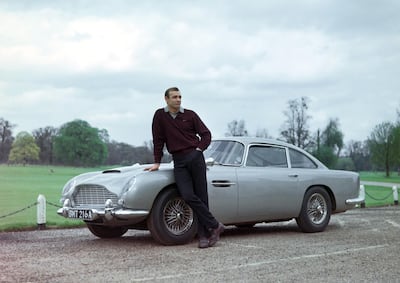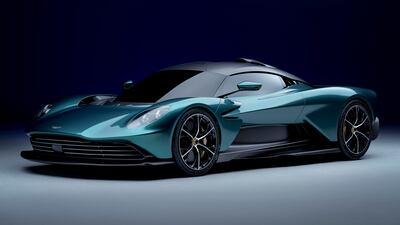When Aston Martin unveiled its first mass-production hybrid supercar, the Valhalla, this month, inevitably much was made of the car company’s link to its most famous customer, James Bond.
007 going green, by stopping off to recharge before hurtling off on a mission, was part of the imagined scenario for the 349kph, £700,000 supercar. It is expected to have a cameo in the latest film in the franchise, No Time To Die.
However, Bond’s heroics would be scuppered by the most simple of problems, the UK parliament was told: lack of charging points in his native Chelsea.
Westminster heard that, like many others, 007 had no off-street parking where he could plug in and there was currently a dearth of stations to charge up electric vehicles.
As such, he would have to forgo the hybrid and hop back in the DB10 vehicle used in the last Bond film, Spectre.

After Prime Minister Boris Johnson last year brought forward the ban on the sale of new petrol and diesel cars and vans from 2040 to 2030, ministers have been pressed for a “serious acceleration” in the provision of charging stations.
Environmentally friendly vehicles form a crucial part of the UK’s green transition and its push to hit net zero emissions by 2050.
As host of the UN climate summit Cop26 this year, the country is emphasising the need for green efforts to be part of the global economic recovery from Covid-19.
It has already had some success. Elon Musk’s Tesla Model 3 was Britain’s best-selling car model in June, as drivers shift towards electric and hybrid vehicles ahead of a ban on petrol and diesel cars.
This week, the House of Lords discussed the government’s delayed Transport Decarbonisation Plan, which includes several consultations aimed at cutting transport pollution to help the UK reach its net zero carbon emissions target.
One measure includes banning the sale of diesel lorries in the UK from 2040.
Speaking in the upper chamber, Tory former minister Lord Herbert of South Downs said: “James Bond’s next car will be the Aston Martin Valhalla, a plug-in hybrid supercar.
“But since 007 has no off-street parking and there are so few charging points he might have no choice but to ask Q for his petrol engine DB10 back.”
He added: “Huge numbers of people can’t contemplate buying even a plug-in hybrid, let alone a fully electric car, even where they really want to because we don’t have anything like the necessary number of public charging points.

“With only eight and a half years to go before a ban on the sale of petrol and diesel new cars what plans does the government have for a serious acceleration in delivery of the necessary charging infrastructure?”
Responding, transport minister Baroness Vere of Norbiton said: “The government empathises with James Bond and indeed with all people, who do not have access to off-street parking.
“It is one of the challenges that we do face going forward.
“That is why the government introduced the On-street Residential Chargepoint Scheme and it available to all UK local authorities to provide public charge points for their residents.
“So far it has awarded funding to 120 different local authorities to install nearly 4,000 charge points.”
She added: “I’d also like to reassure him that the electric vehicle infrastructure strategy will be published later this year and I think that will provide more reassurance to James Bond and everyone else.”


